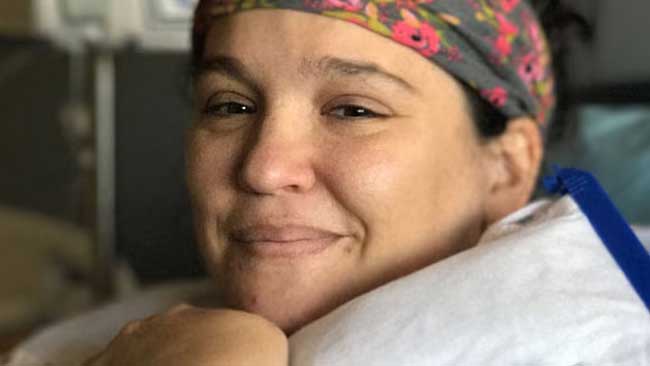From cancer patient to cancer colleague
A member’s cancer journey inspires her to join the team that saved her life.

When Irit Mandelsberg (pictured above) arrives to work each day, she knows it’s exactly where she’s supposed to be. As a manager at the Kaiser Permanente Interstate Radiation Oncology Center in Portland, Oregon, she works with the cancer care team and patients undergoing treatment.
“I feel honored to be a part of this team,” she said. “I can’t imagine being anywhere else.”
Hereditary cancer risk
Mandelsberg’s path to joining Kaiser Permanente started when she was visiting her father in Israel. He was sick and had learned he had a BRCA gene mutation. Being of Ashkenazi Jewish descent, he urged his 3 daughters to get tested for the gene mutation.
Everyone carries the BRCA gene. BRCA mutations significantly increase a person’s risk for certain cancers, including breast and ovarian cancer. It’s estimated that 1 in 40 Ashkenazi Jewish women has a BRCA gene mutation.
Mandelsberg believes her father’s request saved her life. After his death, she returned home and met with a geneticist at Kaiser Permanente. While still processing her grief, she learned she also had a BRCA mutation.
An MRI showed that she had an aggressive tumor. At age 38, Mandelsberg hadn’t planned to start breast cancer screening for another 2 years. “My story would have been very different if I had waited,” she said.
Patient-centered care
Mandelsberg had a double mastectomy followed by 6 months of chemotherapy and weeks of daily radiation.
Her Kaiser Permanente care team quickly became part of her personal community along with friends and family members. “Right from the start, I felt comfortable and cared for,” she said.
The first time she met her radiation oncology physician, Tasha McDonald, MD, Mandelsberg felt at peace. “She had read every line of my chart. She knew me as soon as she walked in,” she said.